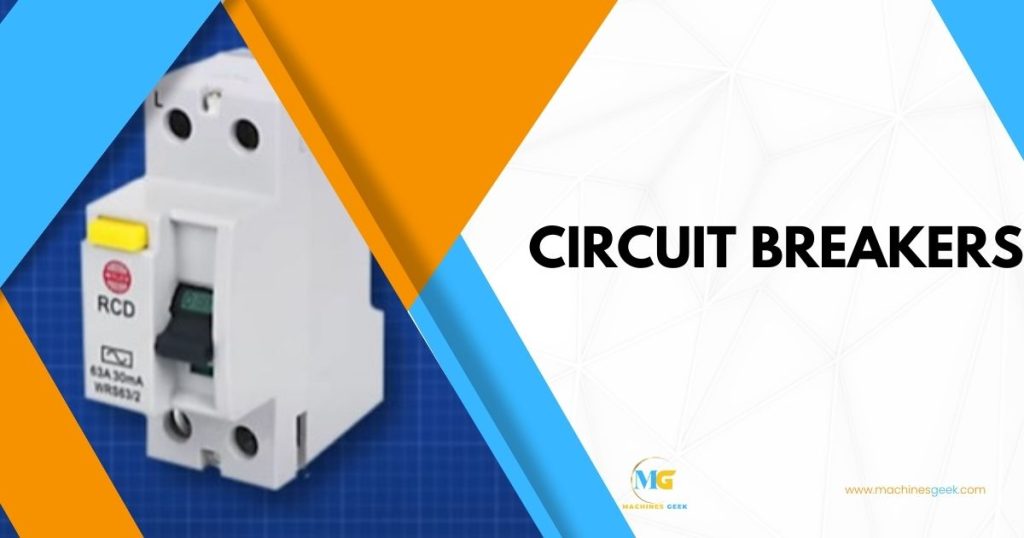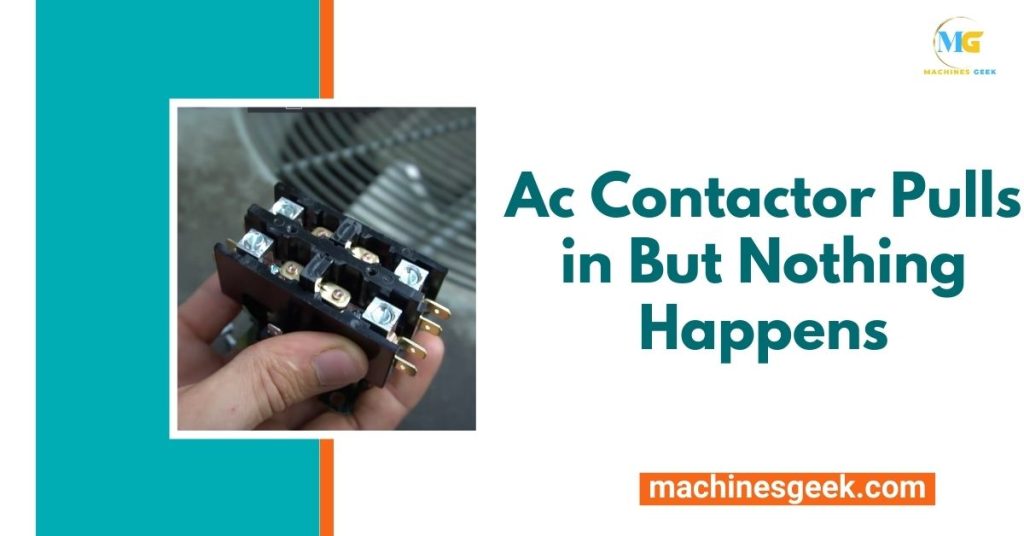When an AC contactor pulls in but nothing happens, it could be due to a damaged or burnt coil, which can be resolved by replacing the coil. If the coil is fine, the issue may lie in the control circuit’s wiring, which will require rectification to solve the problem.
What Is An Ac Contactor And How Does It Work?
An AC contactor is an essential component of an air conditioning system. It is a switch that controls the flow of electricity to the compressor and other parts of the AC unit. When the thermostat sends a signal to cool the room, the contactor pulls in, allowing electrical current to flow through the system and activate the compressor.
The purpose of the AC contactor is to regulate the start and stop of the air conditioning system. It ensures that the compressor is energized when necessary to cool the room and de-energized when the desired temperature is reached.
The AC contactor pulls in when it receives a signal from the thermostat. This signal energizes the coil inside the contactor, causing the contacts to close and complete the electrical circuit. When the contacts close, electricity flows through the system, activating the compressor and other components.
Common Signs Of An AC Contactor Pulling In But Nothing Happening
When an AC contactor pulls in but nothing happens, there are a few common signs to look out for. One noticeable indicator is the lack of electrical activity, such as no lights or sounds coming from the AC unit.
Additionally, you may notice a lack of cool air being produced by the system. It’s essential to check if the power to the contactor is turned on and if the contactor itself is defective.
If the contactor’s coil is damaged or burnt, replacing it should resolve the issue. However, if the coil is fine, there may be a problem with the wiring in the control circuit, which will require rectifying.
Checking for bad or loose electrical connections and improper voltage is also crucial, as these can lead to the contactor not engaging properly.
Possible Causes For An AC Contactor Pulling In But Nothing Happening
Electrical problems and malfunctions can be one of the causes for an AC contactor pulling in but nothing happening. Issues such as bad or loose electrical connections, improper voltage going into the contactor coil, or a corroded electrical connection at the spade terminal can result in low voltage on the contactor coil and the coil not closing the contacts.
Motor issues and mechanical failures can also prevent the AC contactor from engaging. If the AC compressor has a problem or if there is a motor-related issue, the contactor may not pull in even if the rest of the electrical system is functioning properly.
Faulty capacitors or circuit breakers can also contribute to the contactor not engaging. If the capacitors are worn out or if the circuit breakers are tripped, the contactor may not receive the necessary power to pull in.
Additionally, a defective thermostat or control panel can prevent the contactor from engaging. If the thermostat is not sending the proper signals or if the control panel is malfunctioning, the contactor may not be activated.
Troubleshooting Steps For An AC Contactor Pulling In But Nothing Happening

When troubleshooting an AC contactor that pulls in but nothing happens, there are a few important steps to consider. First, check for any electrical supply issues. Ensure that the power to the contactor is turned on.
Next, test the capacitors and circuit breakers to make sure they are functioning properly. A faulty capacitor or tripped circuit breaker could be the cause of the issue. Additionally, inspect the thermostat and control panel for any signs of malfunction.
Make sure that the thermostat is set correctly and that the control panel is not damaged. Finally, verify the functionality of the motor. A motor that is not working properly can prevent the contactor from activating. By following these troubleshooting steps, you can identify and resolve the issue with your AC contactor.
Hiring A Professional To Fix An AC Contactor Issue
When it comes to fixing an AC contactor issue, it is important to seek professional assistance. Hiring a licensed HVAC technician ensures that the problem will be properly diagnosed and resolved, minimizing the risk of further damage to your air conditioning unit.
There are certain qualifications to look for in an HVAC technician. A professional should have proper certification and experience in handling AC contactor issues. They should also possess good problem-solving skills and be knowledgeable about the latest industry trends and technologies.
One of the benefits of hiring a licensed professional is the assurance of quality work. They have the expertise and tools needed to fix the problem correctly, saving you time and money in the long run. Additionally, they can provide a warranty for their services, giving you peace of mind.
Cost considerations for repair services are another important factor to keep in mind. While it may be tempting to opt for the cheapest option, it is crucial to choose a technician who offers fair and transparent pricing, without compromising on the quality of their work.
Are the Issues with Acura MDX AC Controls Related to Contactor Problems?
If you’re experiencing issues with your Acura MDX AC controls, it may be related to contactor problems. Contactors are responsible for controlling the flow of electricity to the AC unit, and any malfunctions can result in poor performance or complete failure of the system. It’s important to have a professional diagnose and repair any contactor issues to ensure optimal functionality of your Acura MDX AC controls.
Preventive Measures To Avoid Ac Contactor Problems
When it comes to preventing AC contactor problems, regular maintenance and inspections are crucial. Cleaning and replacing air filters regularly is important as dirty filters can restrict airflow and put additional strain on the contractor.
Monitoring electrical connections and wiring is essential to ensure that there are no loose or damaged wires that can cause the contactor to not engage properly. Proper usage and care of the air conditioning system can also prevent contactor problems.
Avoiding overworking the system and making sure it is not exposed to extreme temperatures can help prolong the lifespan of the contactor. By following these preventive measures, you can minimize the chances of AC contactor issues and ensure the smooth functioning of your air conditioning system.
Frequently Asked Questions
Will A Bad Contactor Still Pull In?
A bad contractor may still pull in if its coil is damaged. Replacing the coil can solve the issue. If the coil is fine, the problem may lie in the control circuit wiring, which will require rectification.
How Do You Know If Your AC Contactor Is Bad?
If your AC contactor is bad, it may not pull in even when energized. This can be due to a damaged or burnt coil, which can be resolved by replacing the coil. Another possibility could be improper wiring in the control circuit, which will require rectification.
Ensure the power is turned on and check for any defects in the contactor itself.
What Causes Ac Contactor To Not Engage?
The AC contactor may not engage due to a bad or loose electrical connection, improper voltage, corroded terminals, or a burned-out coil. Check the power supply and the contactor itself for defects.
What Happens If Contactor Doesn’t Pull To Start AC Compressor?
If the contactor doesn’t pull to start the AC compressor, it could be due to a power supply issue or a defective contactor. Check if the power to the contactor is turned on and if the contactor itself is faulty.
Conclusion
When your AC contactor pulls in but nothing happens, it could be a result of various issues. First, check if the power to the contactor is turned on. If it is, then the contactor itself may be defective. Another possibility is a bad or loose electrical connection, improper voltage, or a corroded terminal.
Low voltage can also cause the coil to burn out. In such cases, it is crucial to rectify the wiring or replace the coil. By addressing these potential problems, you can ensure your AC starts running smoothly again.








